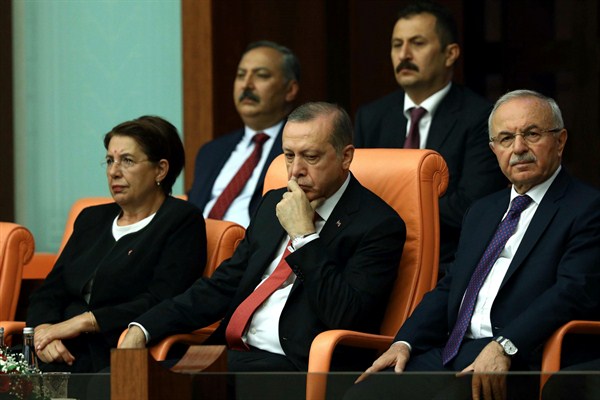After a failed coup attempt in July 2016, Turkish President Recep Tayyip Erdogan has been on a mission to purge the country of his opponents, dismissing thousands of people from the military and civil service, stifling the press, and targeting Turkey’s formal political opposition. In an April referendum, Turkish voters granted Erdogan sweeping new powers that, according to his critics, pushed the country closer to authoritarianism. In an email interview, Iyad Dakka, a fellow with the Center for Modern Turkish Studies at Carleton University in Ottawa, describes the new political landscape of the opposition, Erdogan’s efforts to target parties and their officials, and possible dissension within the president’s own ranks.
WPR: What is the state of the political party landscape in Turkey a little over a year after the failed coup attempt?
Iyad Dakka: On paper, the official Turkish political scene is not much different than it was prior to the failed coup attempt in July 2016. In parliament, Erdogan’s Justice and Development Party, or AKP, continues to dominate the domestic political arena, while the secular and left-of-center Republican People’s Party, or CHP, and the pro-Kurdish People’s Democratic Party, or HDP, are putting up a valiant—though not entirely successful—effort to mitigate Erdogan’s increasingly bold and authoritarian power over the state and key social institutions, such as the media.

